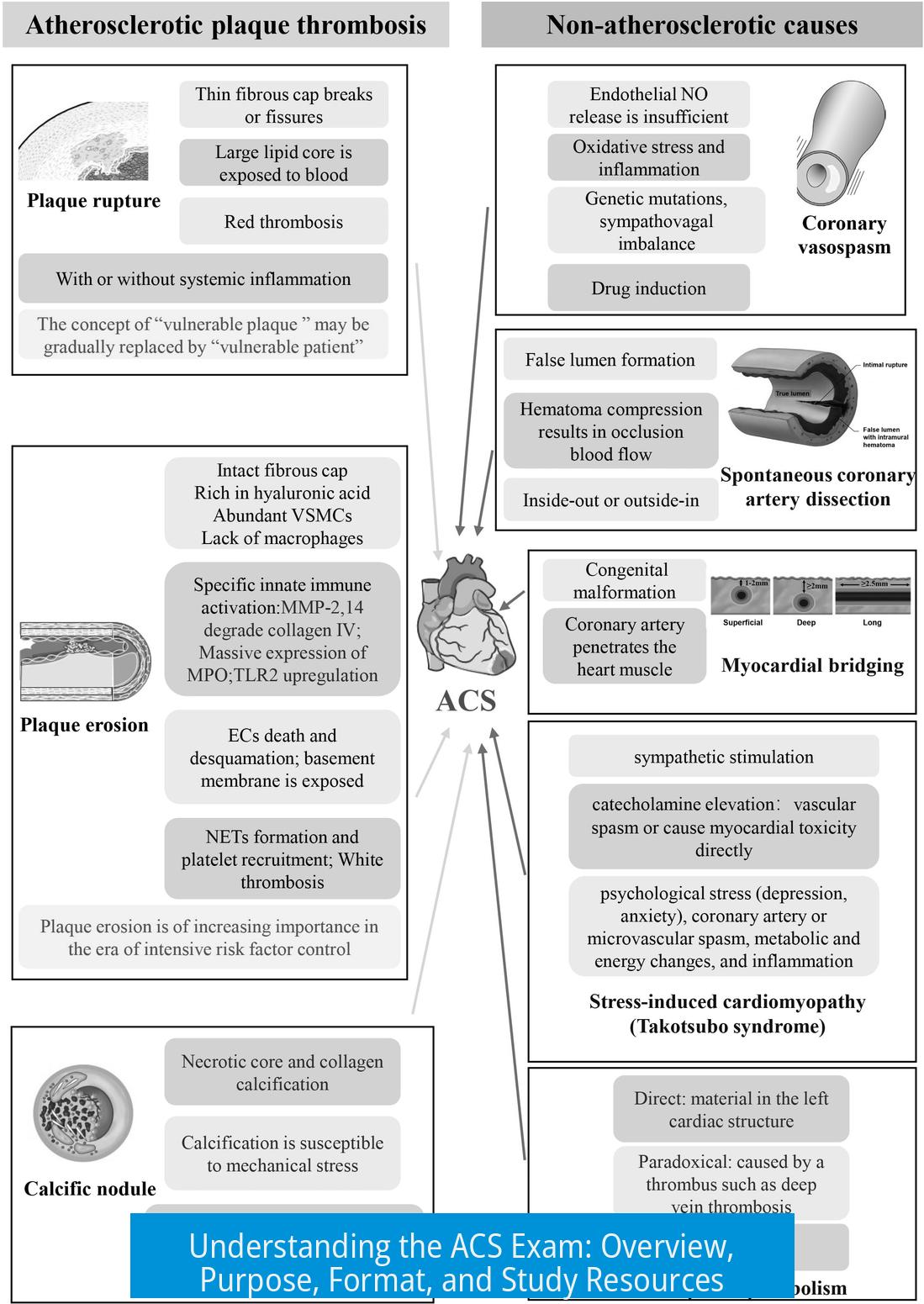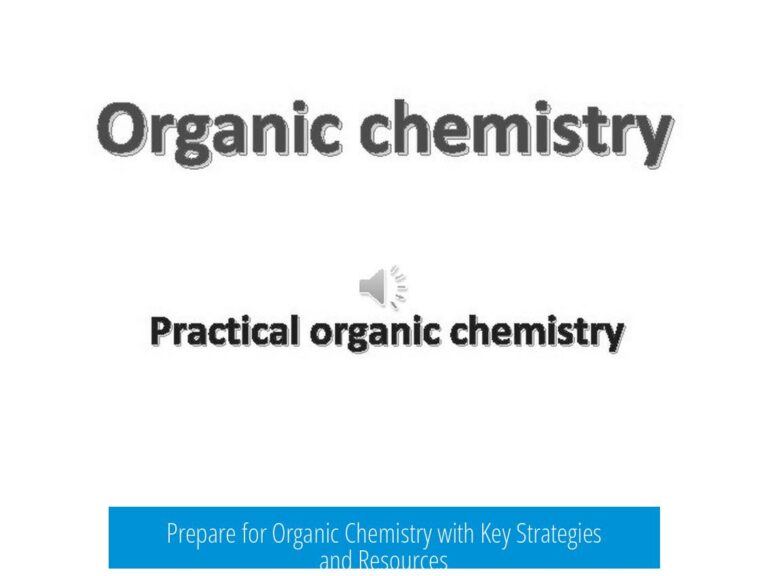What is the ACS Exam?
The ACS Exam refers not to a single test, but to a series of standardized chemistry exams administered by the American Chemical Society (ACS) across various chemistry disciplines. These exams serve as assessments to measure student performance nationally and help institutions evaluate their chemistry programs and instructors.
Overview of ACS Exams
The American Chemical Society provides multiple exams tailored to different chemistry subfields, such as general chemistry, organic chemistry, and physical chemistry. There is no single ACS exam; instead, each discipline has its own standardized test designed by the ACS Exams Institute.
These exams are typically administered in classrooms and proctored by instructors who follow strict guidelines set by the ACS. The scores from these exams are then normalized on a national scale, allowing for consistent comparisons among students and institutions across the United States.
- Multiple exams exist, each for different chemistry disciplines.
- Exams are usually given during class by certified instructors.
- Results are nationally normalized for fair comparison.
- Usage varies: some faculty use full exams, others only portions or none.
Usage in Academic Settings
The ACS exams function as diagnostic and evaluative tools. They provide feedback on how a class or individual student compares nationally. Schools utilize the data during ACS program reviews to assess curriculum effectiveness. Some departments require these exams as final assessments in their courses.
Departments also use ACS exam results to judge professor performance or departmental quality. Doing well on the exam reflects positively on the instructor and the program. Since some colleges compare graduating class statistics, the ACS exams help standardize these comparisons.
Purpose and Importance
The ACS exams serve multiple purposes in educational chemistry programs:
- Student Assessment: Gauge student mastery of chemistry concepts standardized nationwide.
- Program Evaluation: Provide data for administrative review of teaching quality and course effectiveness.
- National Benchmarking: Compare student and program performance with other institutions.
- Instructor Evaluation: Departments may use results to assess teaching impact.
The exams often act as comprehensive final exams. Therefore, students’ preparation reflects not only on personal performance but also on the program’s reputation within the academic community.
Administration and Format
The ACS exams are standardized final exams for ACS-accredited courses. For example, the Organic Chemistry II final exam is commonly an ACS exam. These tests are created by the ACS Exams Institute, while professors administer and proctor them in class.
While many instructors use the full exam as a final, some extract portions of the ACS exam to integrate into their own final assessment. Others may choose not to use the ACS exams at all, depending on institutional preferences.
- Developed and owned by the ACS Exams Institute.
- Administered in-class, proctored by faculty members.
- Used often but not exclusively as final exams.
- Instructions are strict to ensure test integrity and fairness.
The standardized nature of these exams allows consistent evaluation and score normalization across multiple institutions nationally.
Study Materials and Challenges
Studying for ACS exams can be challenging due to limited officially published study aids. Currently, there are only three somewhat outdated ACS study guides available to students. This scarcity presents a significant issue for students preparing for these exams.
Most ACS exams lack dedicated study guides, which complicates preparation. The ACS exams website provides some resources, but they may not cover all exam topics comprehensively.
Students often rely on practice questions, textbook materials, and faculty-provided review resources. Some educational institutions supplement ACS materials with additional study sessions.
Available Study Resources
- Three older ACS study guide books accessible online.
- Sample exam questions provided to instructors.
- Faculty-generated review materials based on ACS question booklets.
- Online resources from ACS exams website: https://uwm.edu/acs-exams/students/student-study-materials/study-guide-books/
Variability in Use and Recognition
The prevalence and recognition of ACS exams vary between institutions. Some schools incorporate the exams regularly, while others rarely mention them. Usage also differs according to departments and course requirements.
At certain institutions, the ACS exam results rarely influence job qualifications or advanced training decisions. However, this may differ at other universities or in more recent years as evaluation methods evolve.
In many cases, professors receive kits from the ACS containing suggested exam questions. These questions help instructors design their own exams, sometimes integrating ACS content partially or fully.
Consequently, some chemistry programs operate independently of ACS exams unless specifically required at their institution.
The ACS DUCK Exam
The Diagnostic for Undergraduate Chemistry Knowledge (DUCK) exam is another standardized test offered by the ACS. It is primarily administered to chemistry seniors before graduation as a comprehensive assessment of their undergraduate knowledge.
The DUCK exam, similar to other ACS exams, is normalized nationally and aids departments in comparing graduating classes over time.
- Given to seniors in their final year.
- Assesses broad undergraduate chemistry understanding.
- Provides comparative data for departmental evaluation.
- Used as a benchmarking tool for curriculum effectiveness.
Additional Resources and Information
Further details about ACS exams, administration protocols, and available study materials can be found on the official ACS exams website. This platform offers updated information for students, instructors, and departments.
Website: https://uwm.edu/acs-exams/
Key Takeaways
- The ACS Exam refers to multiple standardized chemistry tests across various disciplines.
- They are administered in-class, proctored by instructors, with scores normalized nationally.
- Exams evaluate student knowledge, program quality, and instructor effectiveness.
- Use varies widely: some schools embed the exams as finals; others use portions or not at all.
- Limited official study guides exist, posing challenges for exam preparation.
- The DUCK exam is a senior-level assessment comparing graduating classes.
- ACS exam results support national benchmarking and institutional review.
- Additional exam resources are available on the ACS exams official website.
What is the ACS Exam?
The ACS Exam is a set of standardized tests for various chemistry disciplines. They assess student performance nationally and help schools review their programs.
How are ACS Exams used by schools and departments?
Results help evaluate students against national averages. Some departments use these scores to assess instructors and compare graduating classes.
Who creates and administers the ACS Exams?
The ACS Exams Institute designs the exams. Professors give them in class under strict rules, often using them as final exams or parts of finals.
Are there study guides available for the ACS Exams?
Only a few old study guides exist. Most exams lack official study materials, which remains a challenge for students.
What is the ACS DUCK Exam?
The DUCK (Diagnostic for Undergraduate Chemistry Knowledge) exam is a standardized test usually given to seniors. It measures overall chemistry knowledge before graduation.





Leave a Comment